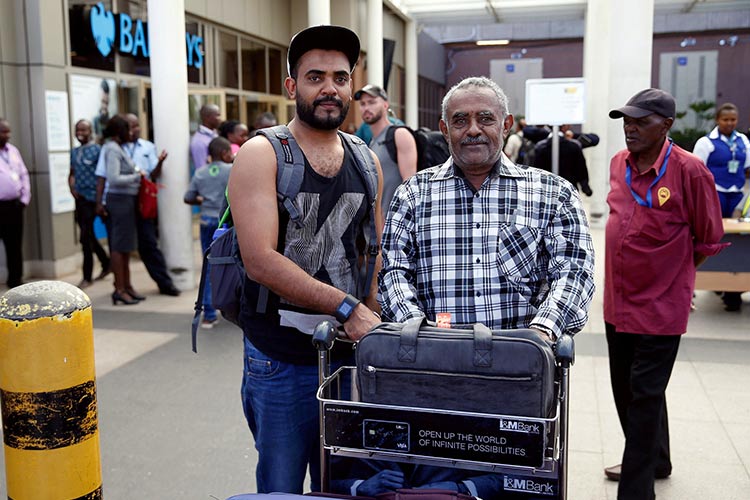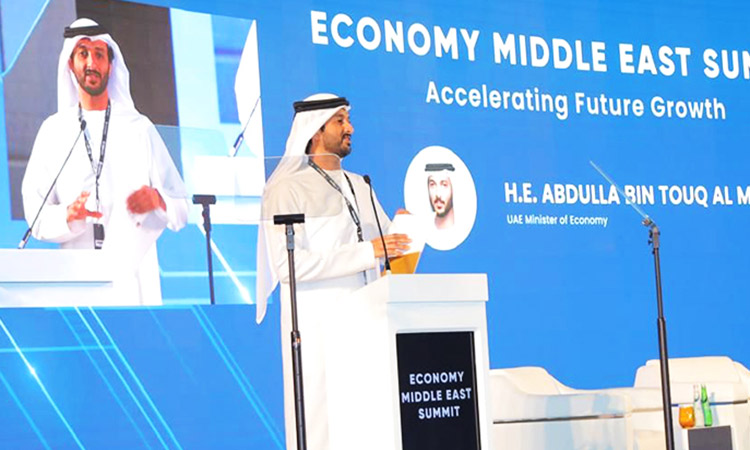Dubai’s non-oil private sector economy rises

The seasonally adjusted Emirates NBD Dubai Economy Tracker Index - a composite indicator designed to give an accurate overview of operating conditions in the non-oil private sector economy - was unchanged from January’s seven-month high of 55.8 in February. This signalled a strong improvement in business conditions that was faster than the trend for 2018.
Companies in the wholesale and retail sector reported the firmest volume growth in February, although with greater price discounting than in January. The headline index for the sector rose to an eight-month high of 58.1, above the comparable figure for the travel and tourism sector (56.8, a nine-month high). The third key sector monitored - construction - also registered a stronger performance in February (54.0).
A reading of below 50.0 indicates that the non-oil private sector economy is generally declining; above 50.0, that it is generally expanding. A reading of 50.0 signals no change.
The survey covers the Dubai non-oil private sector economy, with additional sector data published for travel and tourism, wholesale and retail and construction.
Commenting on the Emirates NBD Dubai Economy Tracker, Khatija Haque, Head of Mena Research at Emirates NBD, said, “The growth in the volume of output and new work has been underpinned by continued price discounting, particularly in the wholesale and retail trade sector. Firms’ margins continue to be squeezed as selling prices have declined on average for the last 10 months, while input costs have increased over the same period. As a result, rising new orders have not translated into increased hiring and job growth in the private sector. Indeed, employment declined at the fastest rate on record in February.” February data signalled a rise in business activity in the non-oil private sector. Moreover, the rate of expansion accelerated to the fastest since May 2018. Wholesale and retail posted the strongest growth among the three key sectors.
However, the rate of contraction in workforces was the strongest registered since the series began in January 2010, despite faster activity growth.
Although total activity expanded at a sharper rate in February, growth of new business slowed since the start of 2019. That said, the pace of expansion was still stronger than the average for 2018. Moreover, new business in the travel & tourism sector increased at a near-record pace.
Dubai-based non-oil private sector companies remained strongly confident regarding the 12-month outlook in February. The respective index eased from January’s record, but was nonetheless among the highest registered since the series started in April 2012.
Cost pressures strengthened slightly in February, as average input prices increased by more than in December and January. That said, the rate of inflation remained below the long-run survey average. Meanwhile, firms cut their charges for a record-equalling tenth successive month. Discounting was again centred on the wholesale & retail sector.
Separately, A report issued by the UAE Ministry of Economy (MoE) on the World Trade Organization’s Trade Policy Review of the United States shows that despite shifts in the US trade policy towards increasing protectionism across multiple sectors, the US remains committed to working with all WTO members in maintaining fair and reciprocal trade partnerships. With its accession to the Trade Facilitation Agreement during the Trade Policy Review period, the report mentioned that the United States had provided the Organization with many notifications covering various sectors such as agriculture, anti-dumping, subsidies and countervailing measures. 20 countries now have 14 valid free trade agreements with US covering goods and services.
WTO’s review noted that there are no changes to the US foreign investment policies as they maintain existing open policies, except for limited audits and restrictions on foreign investment in a few industries, especially aviation, nuclear power. The US has also adopted a policy of reviewing the requirements of national security with the involvement of the Foreign Investment Committee and according to its recommendations and outputs on foreign investment trends, some foreign investment deals, only if proven to pose threats to national security, are cancelled.
WAM







